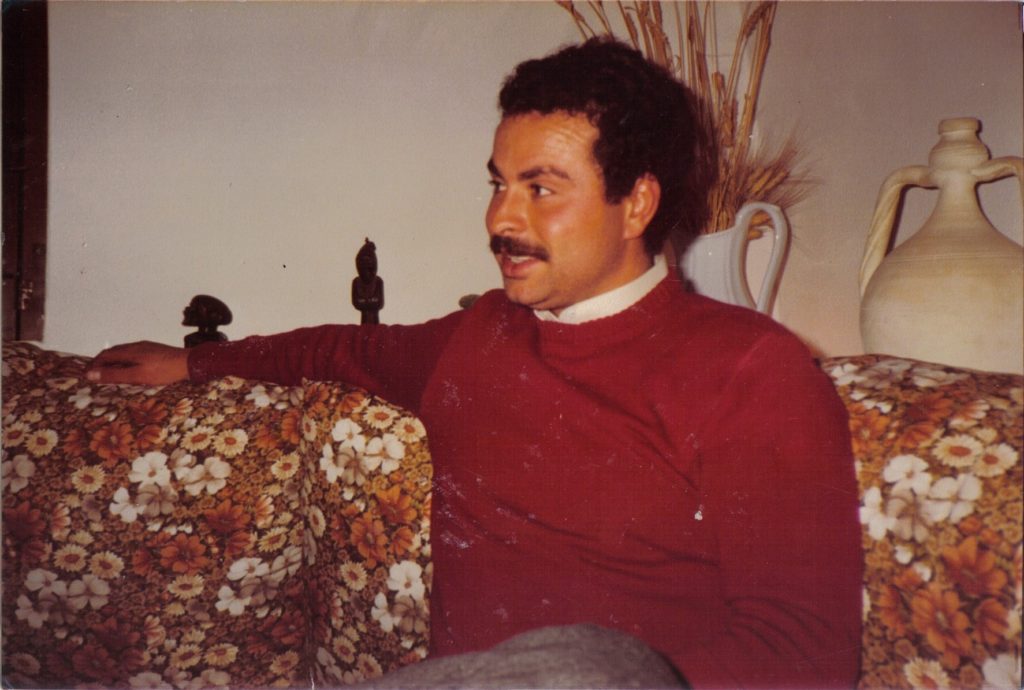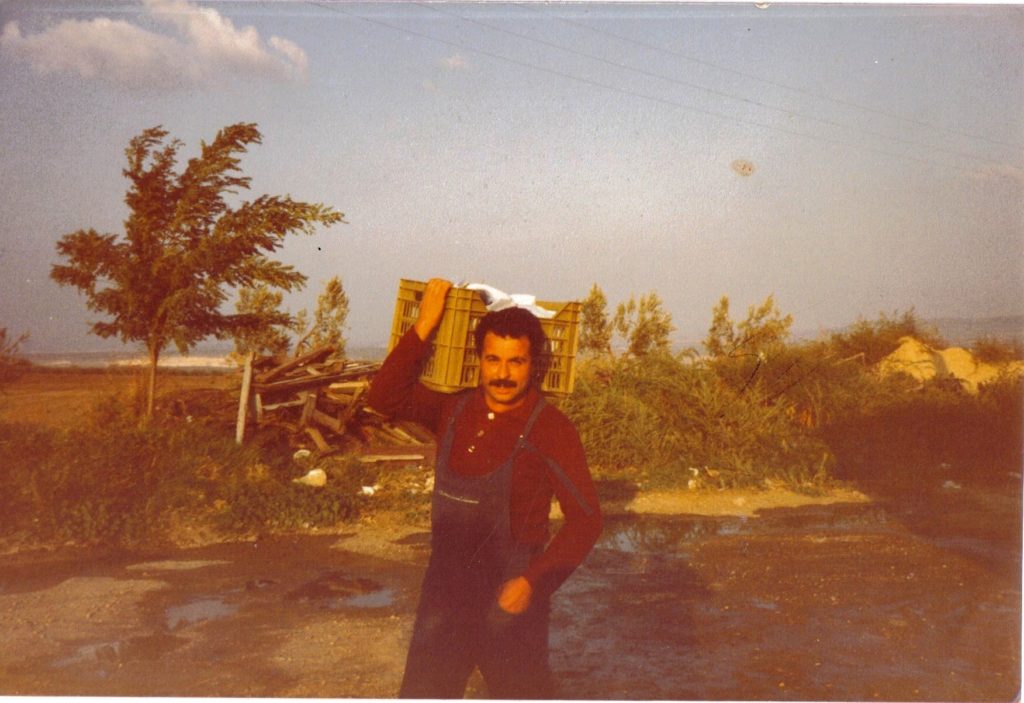Return to the land? Interview with someone who never left.
In the second part of the interview with Michele Lobascio, the father of the Terradiva family, we start from the 1970s, with the occupation of the lands by the young unemployed of Minervino Murge (Puglia), the birth of the “Carmine Giorgio” cooperative and the collaboration with the cooperatives of Emilia-Romagna. We get to the 1990s, and the decision to invest locally in order to enlarge the family farm and to obtain the organic certification.
part II, 70s-90s

At the age of twenty you participated in the land occupation movement in Minervino Murge. Could you expand on that?
I took part in the land occupation movement in 1977-78. At the time there was a national law that aimed at helping unemployed young people by stating that badly cultivated land could be occupied if that could make it more productive.
In Minervino Murge, my Town, in Puglia, there was a large farm owned by a charity but managed by the Municipality. This company was a legacy of the Counts Corsi, which in trusting it to the public institutions had expressed their intention that the proceeds from these lands and other properties would finance the schooling of the children of the laborers who had previously worked in those same lands.
The occupation of the lands by us, the young unemployed people of the area, lasted months. Whenever the police arrived and cleared us out, we went back to those lands and sat down, standing still until the police came back and kicked us out again. And so forth and so on. In the end, however, we made it: we were able to demonstrate the authorities that we could make those lands more productive, that they could be transformed, and so they were assigned to us.
We also underwent a trial for occupation of private property, which took place in the council chamber of our Municipality: the initiatives of our land occupation movement gained resonance in the media at the national level. Something I could have never imagined!
The RAI (the Italian state tv) filmed and broadcasted a documentary on the history of the agricultural laborers’ struggles in Minervino Murge. Did this greater visibility have consequences for you?
That documentary was watched throughout Italy, so we were contacted by the manager of a cooperative in Sant’Alberto (Ravenna) – Bruno Taroni – he wrote us a letter that I still have: it gave us courage, told us not to give up, to be strong and to move forward in our struggle, in the occupation of the lands. So I took it upon myself to reply to this letter.
Right around that time, in Sant’Alberto they were having the annual cooperative celebration, they invited us and we were honored to participate… It was a huge cooperative compared with our own. They cultivated fruit trees and had a number of livestock farms.
Thus was born a collaboration between our two cooperatives and a long friendship with that manager who first wrote to us and who later also became my wedding witness. Their support was fundamental: we got in touch with agronomists and administrative staff who helped us structure our newborn cooperative. We dedicated that cooperative to Carmine Giorgio, a baker from Minervino who in the early decades of the 1900s fought hard to improve the conditions of the farm laborers.
We also received aid from Emilia Romagna, in particular from the League of Cooperatives of the Ravenna Federation, in the form of very useful equipment: irrigation systems, tractors and tools for cultivating the land and planting new trees in an area that until then had been mainly used for the cultivation of wheat.
After my experience in that first cooperative, I got also involved with the “La Primula” Cooperative, so named after the primula, the first flower that blooms around here after the cold of winter.
The cooperative experiences were a great training: the sharing of ideas among us young people, the construction of the team, the quarrels, the sometimes even harsh confrontation between different ways of thinking.

And after the experiences in the cooperatives where you worked?
After the cooperatives, I spent some years working in the processing and marketing of agricultural products. It was an important job for me because I understood how organized large-scale distribution worked, the mechanisms inside the distribution centers of fruit and vegetables, how vegetables and table grapes were processed in the fields.
All of this helped me a lot for what was to come in later years. Meanwhile, I continued to invest in agriculture and to buy plots of land that I combined with those inherited from my father and, thanks to my wife, through my father-in-law.
In 1999 I finally decided to withdraw from the transformation industries and to dedicate myself exclusively to running my family’s business by transforming it and certifying it as an organic farm.
What would you say to young people who want to do this job today?
Agriculture is a job that you must love. The trees, what you sow, the vegetables, are alive… If you sow you will see the results, you will see the flower then the fruit, it’s a great feeling. Plants are alive and fragile like all living things. They need to be tended on their own terms, certainly not only when you can or feel like, so you have to be ready all the time, they don’t wait for you.
You have to talk to the plants. Today, when I work on the fields, in the family business – Terradiva – I know every tree, I remember their needs: that tree has a certain disease, the other one has a problem with the roots and therefore they need completely different care. It’s basically like dealing with people.
What is innovation for you?
Innovation is something that allows us you to live better, relieves us of fatigue. Agriculture is exhausting, quite different from some images that we often see on TV … of a “romanticized” agriculture. Today innovation allows us to produce more easily than in the past and without using toxic chemicals.


